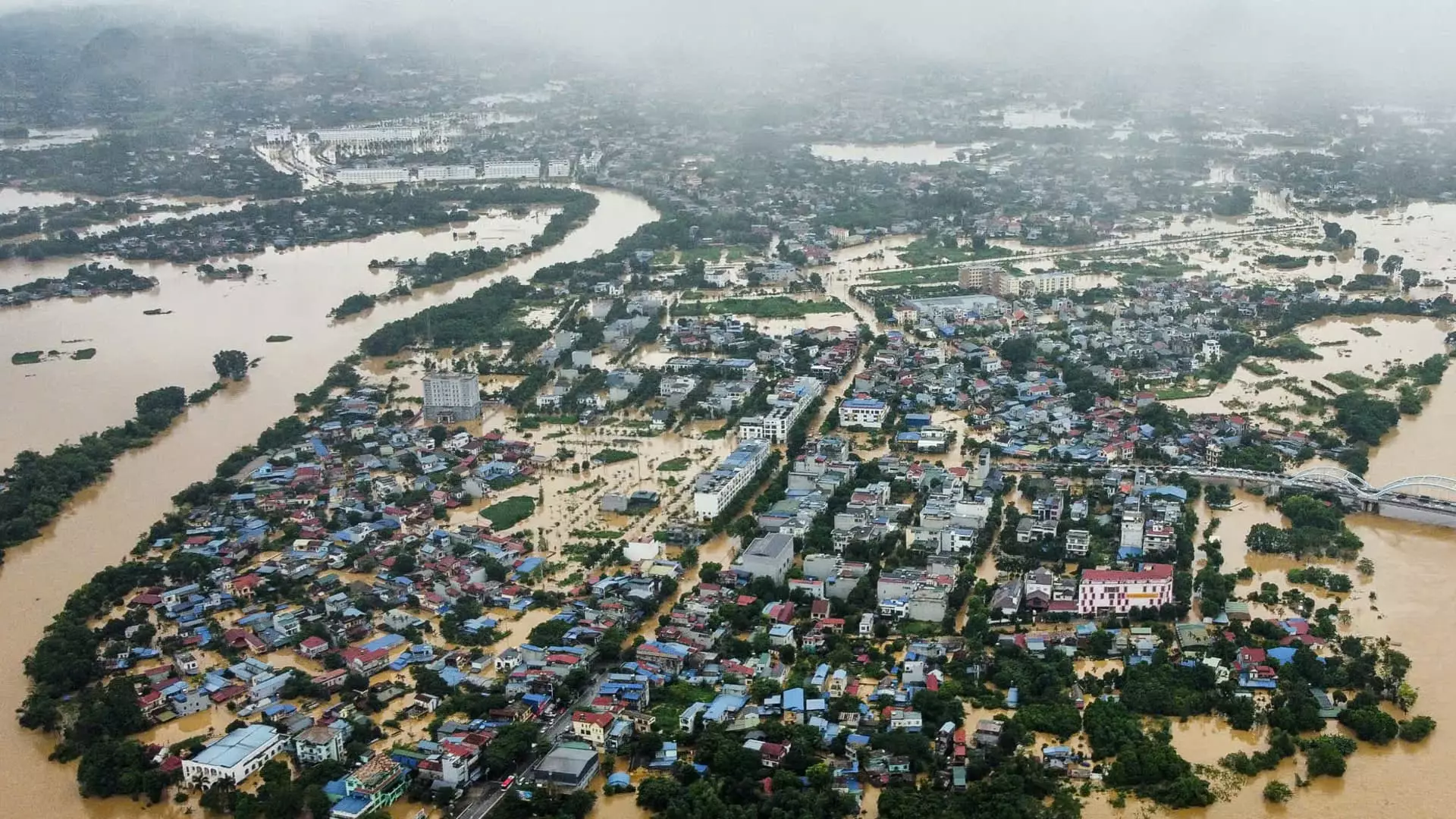As we reflect on 2024, the Indo-Pacific region emerges from a year marked by significant challenges and unexpected victories. In an environment shaped by economic uncertainties, severe climatic events, and shifting political landscapes, the narrative of the year demonstrates resilience amid adversity. While many communities faced hardships, instances of cultural exuberance and political fluctuations reflected a diverse and dynamic region. This article aims to dissect the multilayered aspects of the year, offering insights into the socio-economic and cultural shifts that defined 2024.
The impact of climate change was acutely felt across the Indo-Pacific in 2024. Unlike previous decades, where singular catastrophic events captured global attention, this year was characterized by a relentless series of climate-driven disasters that have left in their wake thousands of victims. Super Typhoon Yagi stood out as one of the most destructive storms in recent history, traversing regions from the Philippines to Vietnam and causing unprecedented loss of life and livelihood. Communities were shattered, and the emotional toll on affected populations is immeasurable.
Accompanying this storm were seasonal monsoons that transformed into catastrophic floods in countries including Afghanistan, Bangladesh, and Nepal. These natural disasters resulted in a year marked by mounting casualties that may solidify 2024 as one of the grimmest for climate-related incidents in Asia. Water scarcity also became a pressing issue in areas afflicted by prolonged droughts, illustrating the complexity and severity of climate challenges. As weather patterns grow increasingly erratic, it is critical that international responses evolve to address this escalating crisis.
In addition to environmental tribulations, 2024 was plagued by demographic challenges, notably a decline in birth rates across East Asia. Countries like South Korea, Japan, and China experienced dramatic drops in fertility, culminating in a crisis that foreshadows potential socio-economic ramifications. Generational shifts in values underscored the reluctance of many women to pursue traditional family structures due to work pressures, housing costs, and accessibility of childcare.
As a result, South Korea gained the designation of a “super-aged” society, sparking concern over the balance of working-age populations relative to retirees. The long-term effects of these demographic shifts could ripple through economies, prompting urgent governmental interventions aimed at reversing declining birth rates and bolstering workforce participation.
As elections swept across the Indo-Pacific region, political landscapes adapted in multifaceted ways, revealing the fragile state of democracy in many countries. In Bangladesh, Prime Minister Sheikh Hasina’s recent electoral victory was marred by unrest, culminating in her eventual resignation amid protests. In South Korea, political strife escalated when President Yoon Suk-Yeol declared martial law following significant electoral losses and public backlash. This resulted in a rapid political upheaval, showcasing the volatile nature of governance in contemporary Asia.
Conversely, Taiwan continued to exemplify vibrant democratic practices, affirming its status as a beacon of political resilience. Similarly, India witnessed a dynamic shift in leadership as Prime Minister Narendra Modi was constrained to govern within a coalition framework. Such mixed political outcomes portray an Indo-Pacific region grappling with deep-rooted challenges while simultaneously exhibiting the enduring spirit of democratic engagement.
Amidst political and environmental upheavals, 2024 also celebrated the continued ascension of the Hallyu wave, South Korea’s cultural influence that transcends borders. The global appetite for K-pop, K-dramas, and Korean cinema surged, with Netflix reporting over 300 Korean titles available for streaming, including crowd-pleasers like “Squid Game” Season 2 and the romantic sensation “Queen of Tears.”
This cultural phenomenon not only entertained but also served as a potent symbol of South Korea’s soft power, contributing billions to the economy and strengthening international relationships through shared cultural experiences. With the Nobel Prize for Literature awarded to the Korean author Han Kang, 2024 will also be remembered as a landmark year for Korean literature, further solidifying the country’s cultural renaissance.
In a delightful twist, the birth of Moo Deng, a baby pygmy hippopotamus in Thailand, captivated hearts around the globe in 2024. Dubbed the “hyper-viral” sensation, Moo Deng’s irresistible charm launched a plethora of memes and social media accounts, illustrating the whimsical nature of public interest. Even platforms like “Saturday Night Live” embraced the phenomenon, showcasing how cultural icons can arise unexpectedly, often providing moments of joy amid challenging times.
The Indo-Pacific region’s diverse experiences of 2024 underscore a resilience that thrives in the face of adversity. As societies grapple with climatic, demographic, political, and cultural shifts, understanding these intricate layers becomes essential for predicting future trends. The persistence of hope and joy amid hardship can serve as a guiding principle, suggesting that even in tumultuous times, the human spirit remains vibrant and resourceful. Acknowledging the lessons learned from a challenging year may pave the way for a brighter and more collaborative future in the Indo-Pacific.

Leave a Reply